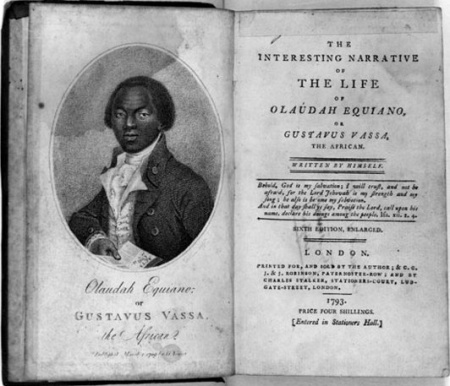

Equiano thus developed an identity forged from his manumission, his experiences at sea, his conversion to Christianity, and his movements in the public arena. This work asserted that Olaudah Equiano was a man, a British citizen, and a Christian. He presented a petition to the Queen, protested the government's criticisms of him, and, of course, published his autobiography. He entered the public world of the British empire, becoming involved with the abolitionist movement. He converted to Christianity and began to define himself in terms of that religion. He proved his worth at sea, and garnered the approbation of those around him. He made his own decisions regarding where he went and what sort of employment he pursued. After he was freed, however, Equiano was finally able to fashion himself a true identity and discover a real sense of self. Equiano endeavored from early on to discover who he was, but slavery limited his opportunity for self-discovery. He had no control over his own movements, his property, or even his own name. As an African and a slave, Equiano had no identity. The book's main narrative is that of a man who is allowed no identity early in life, but perseveres to shape one in spite of the world. Though different masters show Equiano wildly varying degrees of cruelty or kindness, they are all complicit in its horrors, and hence does he endeavor through his work to show them the error of their ways. Even white men were corrupted by the slave trade, since it pushed them towards their baser instincts and turned otherwise decent people into monsters. Deleterious behavior resulted from the unnatural elevation of the white man over black. The chastity of female slaves was violated.


They were subject to the most horrible punishments, delivered for capricious and unjust reasons. were almost obliterated by the dominant society that kept them as chattel. Any sense of history, culture, tradition, values, etc. Slaves were given new names, their identities virtually erased. The bonds of mother and child, husband and wife, and brother and sister were destroyed. Africans, including children, were kidnapped from their homes and severed from their families. Equiano's own life bears testament to how terribly it harms everyone involved. Perhaps more than anything else, the work is centered around the destructiveness of the slave trade. Buy Study Guide The destructiveness of the slave trade


 0 kommentar(er)
0 kommentar(er)
